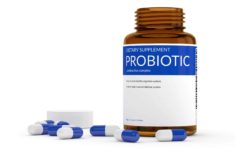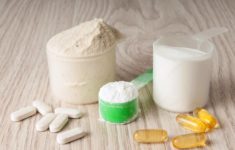Before answering the question of how long does pre-workout last, I feel that it’s important to tell you what is pre-workout. So, what is it?
Well, simply put, pre-workout supplements or pre-workouts refer to a number of supplements that you are supposed to take pre-exercise in order to improve your performance at the gym.
Their ingredients may vary, from time to time, and most of the common ones will be mentioned in this article.
We will be telling you all about its effectiveness and possible side effects you should pay attention to.
The main topic that we will cover in this article is the question about the duration of pre-workouts. So, we will answer the question of how long does pre-workout last and much more.
“How and why” of the supplement business is laid out on these pages because the last thing you need is using something that you know nothing about.
Should you be relying on pre-workout, how should you take it, and many more questions will be answered in the following lines.
Table of Contents
How To Know If Pre-Workout Is Working
Because a lot of pre-workouts are caffeine-based, the effect they have on you and your body will most likely depend on your daily caffeine intake.
If you are an avid coffee drinker, and you’ve built up a resistance to caffeine, you should still feel the effects of pre-workouts, but only slightly less.
To know that your pre-workout supplements are working you should feel some of the following [1]:
- Highly energetic
- Focused
- You could feel your skin tingling (yes that happens sometimes)
- Generally stronger
- Basically, you are now John Wick and every rep you do is a Russian mobster that killed your dog
- Improved endurance (there are a lot of Russian mobsters).
How Long Does Pre-Workout Take To Kick In?
It’s important to note that it takes time for the effects of pre-workout to kick in.
The common mistake that people make is that they take their pre-workouts at the gym, not considering the time it takes for the ingredients to take effect.
Most of the ingredients should take between 30 minutes to an hour to reach their peak levels in your blood giving you the maximum benefit [2].
In contrast to that, you should also be mindful of not taking your pre-workouts too early. As someone once said, “time is of the essence”, or something like that. You get the gist.
What Does Pre-Workout Do To Your System?
There are a number of different ingredients included in pre-workouts. We will now list the most commonly used ones, as well as their effects on your body.
1. Creatine
Creatine is a molecule naturally found in your cells. Used as a pre-workout supplement it improves your muscle mass and strength gain [3].
It increases the levels of adenosine triphosphate (ATP) in your muscles, giving you more energy to deal with those pesky Russian mobsters…Reps, I mean reps.
Creatine is one of the world’s most tested supplements and is considered by many to be the safest one.
2. Caffeine
Mostly found in coffee and tea, caffeine is a natural molecule that stimulates parts of your brain, giving you more energy and increasing your alertness [4]. It does so by inhibiting adenosine receptors in your brain.
Caffeine also affects your adrenal glands and increases the release of catecholamines.
As an ingredient of your pre-workouts, caffeine can also decrease the feelings of pain or discomfort, allowing your workouts to be more effective and to last longer periods of time.
4. Beta-Alanine
Beta-Alanine is a non-essential amino acid. Essentially, what that means is that beta-alanine is not used by your body while synthesising proteins.
Reacting with an essential amino acid, histidine, beta-alanine produces a dipeptide molecule called carnosine [5].
One of the common ingredients in pre-workouts, beta-alanine will help with improving your performance during exercise. It increases your energy a couple of minutes at a time, giving you a chance to do more reps, and in turn feel more gains in the long run.
5. Citrulline
Citrulline is an amino acid that is produced naturally in your body. Studies have shown that taking it as a supplement can have a positive effect on your workout.
Citrulline increases the blood flow to your muscles, increasing the oxygen levels, and giving you a boost in endurance [6].
How Long Does Pre-Workout Stay In Your System?
It all depends on the type of ingredients used in your pre-workouts.
Effects of caffeine and beta-alanine can last between 60 and 90 minutes.
In the case of creatine, the effects can last up to a couple of hours.
How long do these ingredients stay in your system? As far as creatine and/or beta-alanine goes, they were always in your system, so, the answer is forever.
By using them as supplements, you are increasing their amount in your body, and in turn, the positive effects you gain from them.
Caffeine will usually stay in your body for about 10 hours or so [7]. With its effect on your energy peeking around 45 minutes after ingestion.
Factors That Influence How Long Does Pre-Workout Last
There are many of them. From the type of pre-workout supplement you are using to the amount of sleep you had the night before you went to the gym. We’ll name a few of them here:
1. Caffeine tolerance
2. Your age
3. Your weight
4. Your muscle mass
5. Your diet
6. Quality of ingredients in your pre-workouts
7. The way you feel before going to the gym (the level of weariness or fatigue you’ve built up).
FAQ
Is Pre-Workout Still Good If It Gets Hard?
One of the most common problems with pre-workouts is your powder hardening and getting lumpy.
This happens due to the fact that ingredients in pre-workout supplements attract water molecules while staying at room temperature over a period of time.
Now, does that mean it’s unsafe to use? Absolutely not, unless it’s past its due date, of course. Clumpy or not, hardened or soft, your pre-workout supplement should still be safe to use.
The best solution is to put the whole thing into a blender and give it a good mix.
Does Pre-Workout Affect Sleep?
One of the most commonly used ingredients in pre-workout supplements is caffeine. With its half-life of 3 to 5 hours, caffeine is the main reason for your pre-workout affecting your sleep schedule.
Caffeine activates epinephrine and norepinephrine in your body [8], keeping you energised and wired throughout your gym session.
Those effects can last for a while, leaving you staring at your ceiling thinking about that one time that you did something stupid 5 years ago.
Because of that, make sure to check the amount of caffeine that’s contained in your regular dose of a pre-workout supplement. Especially so, if you are planning to workout in the evening.
A lot of pre-workout supplements have a high amount of caffeine in them (around 500mg per serving). At the same time, one cup of coffee is usually between 80-100 mg.
So to avoid the pre-workout side effects, and sleep problems, you should always check the amount of caffeine in your pre-workout. And as an added precaution you should make sure not to take your pre-workout at least 6 hours before sleep.
For those intolerant to caffeine, don’t fret, there are a lot of caffeine-free pre-workouts.
Is Pre-Workout Bad For You?
Generally speaking, no. If you are taking the recommended dose, pre workouts are safe. There is no evidence of long-lasting problems caused by pre-workouts.
But, as it goes with anything in life, there might be some side effects.
Caffeine can sometimes have an adverse effect on your body. Causing you to sweat more, making you feel anxious, or in some cases, giving you diarrhea [9].
Many pre-workouts use sugar alcohols or artificial sweeteners as one of the ingredients. The main reason for this is, improving the flavour without adding more calories.
These ingredients can cause issues such as intestinal problems or general discomfort. We are talking about gas (not the kind of gas the US will invade your country for, at least not yet) and bloating [10].
Some people can have indigestion, while some experience a tingling sensation in their skin (most likely due to beta-alanine).
In most countries, pre-workouts are considered dietary products, which means that they are not as closely regulated as products used in medical treatments.
So, before using any of the pre-workout supplements, take the time to do your research! Check-in with someone you trust, or simply do what you are currently doing. Read some online articles and decide for yourself or check with your GP.
Can I Drink Pre-Workout Every Day?
Technically, yes. But, I think a better question would be, should I drink pre-workout every day?
A lot of ingredients of pre-workout supplements are considered to be stimulants, which means that over time, and prolonged usage you can get addicted to them.
To avoid any medical issues, you should take only the recommended dose.
Also, an important thing to note is that after using your supplements for a period of a month or two it is advisable to take a two-week break from them.
You take that break, not only because of the possibility of getting addicted but also because your body will naturally build up an immunity to those ingredients, decreasing your gains and benefits from pre-workouts in the long run [11].
How Much Water Should I Drink Pre Workout?
Drinking enough water is extremely important, not only for your workouts but for your health in general. After all, there would be no life on Earth without water!
For women, the recommended dose of water that should be ingested daily is around 2 litres. For men, that number is around 2 and a half litres.
Now, for your trips to the gym, it is recommended that you take in at least half a litre of water 30 minutes before your workout. The same amount should be drunk at least 45 minutes afterwards.
If you are taking pre-workout supplements, the usual amount of water is around 350 ml for one serving. Taking that amount of water can minimise the negative side-effects of pre-workout supplements.
Creatine, in high doses, can be harmful to your kidneys, so drinking enough water can be highly beneficial to your body, your health and safety, while taking pre-workouts [12].
The Bottom Line
Consuming pre-workouts can increase your energy output as well as your general performance at the gym.
They can be quite powerful in helping you to achieve fantastic results. In deciding what product to buy, you should be more focused on the list of ingredients than on the product as a whole.
Most of the time, they will have ingredients like caffeine, beta-alanine and creatine, so those would be the things to look out for while searching for your pre-workouts.
You should take pre-workouts 30 minutes before you exercise and they can usually last for hours while exercising.
Most of them are safe to use since there are no evident cases of them being hazardous to your health. Side effects that we covered are important to keep in mind but in most cases, they are not health-threatening.
You should be careful if you already have underlying health problems (especially with your heart). In that case, you should refrain from using pre-workouts or simply consult a doctor before buying some.
To ensure the quality and reliability of your supplements you should make sure to use pre-workouts that are third-party tested to ensure quality and safety.
References
- https://nsuworks.nova.edu/cgi/viewcontent.cgi?article=1764&context=ijahsp
- https://www.bodybuilding.com/content/3-mistakes-youre-making-with-your-pre-workout-supplement.html
- https://pubmed.ncbi.nlm.nih.gov/25946994/
- https://www.ncbi.nlm.nih.gov/pmc/articles/PMC4462044/
- https://jissn.biomedcentral.com/articles/10.1186/s12970-018-0224-0
- https://pubmed.ncbi.nlm.nih.gov/26023227/
- https://www.medicalnewstoday.com/articles/321784
- https://www.scientificamerican.com/article/how-does-caffeine-affect/
- https://www.healthline.com/nutrition/caffeine-side-effects
- https://pubmed.ncbi.nlm.nih.gov/27840639/
- https://www.healthline.com/nutrition/pre-workout-supplements
- https://pubmed.ncbi.nlm.nih.gov/26874700/






